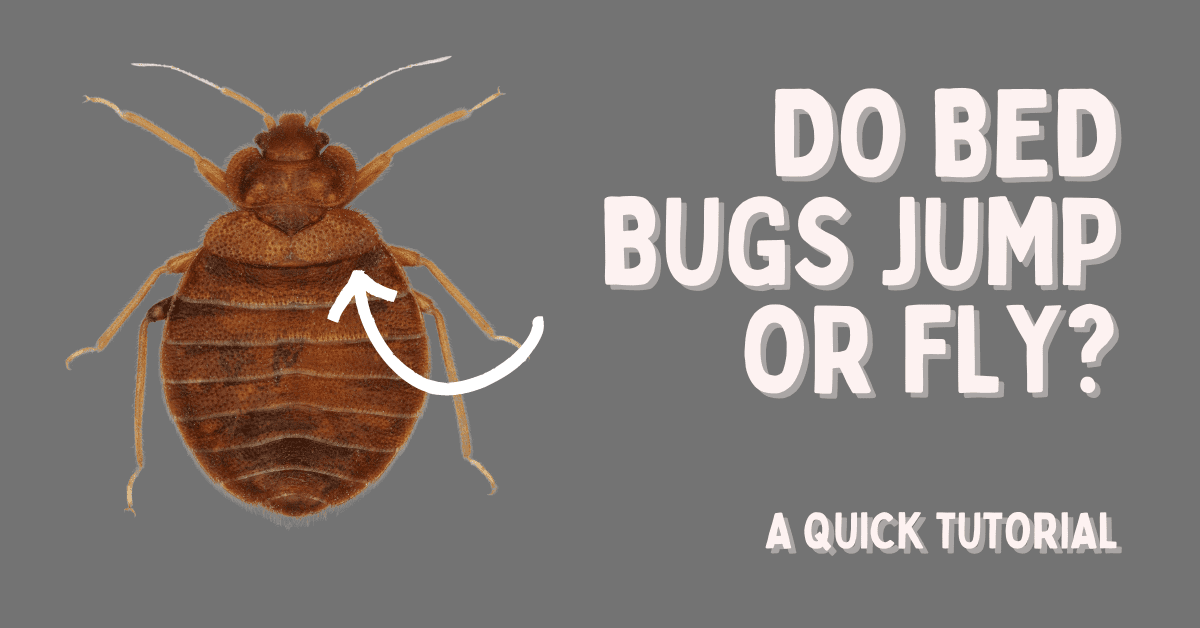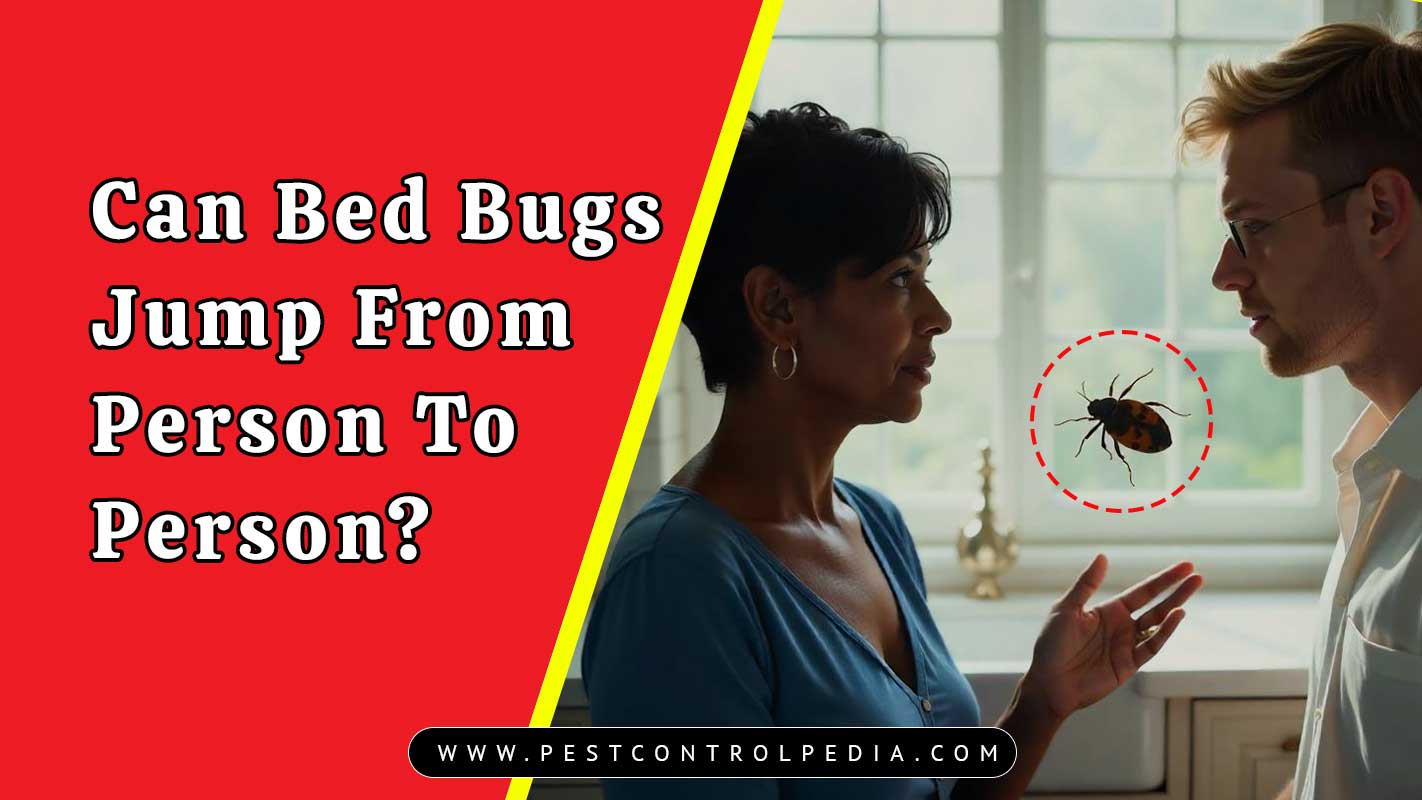Have you ever wondered, can bed bugs jump from person to person? This question often arises when discussing these pesky pests. Bed bugs are notorious for their ability to invade homes and cause discomfort, but many misconceptions surround their behavior. Understanding how they spread is crucial for effective prevention and treatment.
In this blog, we will explore the truth behind bed bugs and their movement. While they are often thought to jump like fleas, the reality is quite different. By diving into their biology and behavior, we can demystify common myths and provide valuable insights for those dealing with infestations.
Understanding bed bug behavior can empower you to take action. Let's explore the amswer for "Can Bed Bugs Jump from Person to Person?" and how these pests operate and what you can do to keep them at bay.
Table of Contents
ToggleCan Bed Bugs Jump from Person to Person?
The short answer is no; bed bugs cannot jump from person to person. Unlike fleas, which have specialized anatomy that allows them to leap significant distances, bed bugs are not equipped for such movement. They primarily rely on crawling as their mode of transportation.

Bed bugs are adept at hitchhiking, meaning they can latch onto clothing, luggage, or personal belongings. This ability allows them to travel from one location to another without jumping. When a person visits an infested area, these pests can easily attach themselves to items and be transported back home.
This crawling behavior means that while bed bugs may not jump directly from one individual to another, they can still spread effectively through indirect contact. Awareness of this fact is essential for preventing infestations in your living space.
How Do Bed Bugs Spread?
Bed bugs spread primarily through a process known as hitchhiking. They can cling onto various items such as:
- Luggage: When traveling, bed bugs can easily find their way into suitcases or bags.
- Clothing: They may attach themselves to clothes worn by individuals who have been in infested areas.
- Furniture: Secondhand furniture can be a significant source of infestation if not properly checked before bringing it into your home.
This means that while bed bugs do not jump from person to person directly, they can still be transported between locations via these methods. Understanding this transmission route is vital for anyone looking to avoid bringing these pests into their home.
The Life Cycle of Bed Bugs
The life cycle of a bed bug consists of several stages: eggs, nymphs, and adults. Female bed bugs lay eggs in hidden areas, which hatch into nymphs after about a week. Nymphs go through five molts before reaching adulthood, requiring blood meals at each stage. This cycle contributes significantly to the rapid spread of infestations if left unchecked.
The entire life cycle can take as little as five weeks under optimal conditions, making it crucial for homeowners to act quickly upon discovering signs of an infestation. Regular inspections and proactive measures can help mitigate the risks associated with these pests.
Prevention Tips for Bed Bug Infestations
Preventing bed bug infestations requires vigilance and proactive measures. Here are some effective strategies:
- Regular Inspections: Frequently check your sleeping areas and furniture for signs of bed bugs.
- Avoid Secondhand Items: Be cautious when bringing used furniture or clothing into your home without thorough inspection.
- Luggage Care: When traveling, keep luggage off the floor and inspect it regularly for any signs of bed bugs.
Taking these precautions can significantly reduce the likelihood of encountering these pests in your home. Staying informed about their behavior is key in maintaining a pest-free environment.
Frequently Asked Questions - FAQS
Q. Can I get bed bugs from my friends?
A. While you can't catch them directly, you may pick them up on clothing or belongings after visiting an infested location.
Q. How do I know if I have bed bugs?
A. Look for small reddish-brown spots on bedding or furniture, which indicate bites or fecal matter left by bed bugs.
Q. What should I do if I find bed bugs?
A. Immediately wash affected items in hot water and consider contacting pest control professionals for treatment options.
Q. Do bed bugs transmit diseases?
A. No, while their bites can cause irritation and allergic reactions, they are not known to transmit any diseases.
Q. How long do bed bugs live?
A. Adult bed bugs can live several months without feeding, making them resilient pests during infestations.
Q. Can I treat a bed bug infestation myself?
A. While DIY methods exist, professional extermination is often more effective due to the complexity of infestations.
Q. Are there natural remedies for bed bugs?
A. Some natural remedies may help repel them but are generally less effective than chemical treatments or professional services.
Q. How fast do bed bugs reproduce?
A. Under ideal conditions, a female can lay up to 500 eggs in her lifetime, leading to rapid population growth.
Q. Can pets get bed bugs?
A. Pets are not typical hosts for bed bugs; they prefer humans but may occasionally be affected if close to infested areas.
Q. What attracts bed bugs to my home?
A. Bed bugs are attracted by warmth and carbon dioxide emitted by humans, making sleeping areas prime locations for infestations.
Conclusion
The question remains: can bed bugs jump from person to person?. The answer is clear—they cannot jump but are skilled at hitchhiking on personal belongings and clothing. Understanding their behavior is crucial in preventing infestations and protecting your home from these unwelcome guests.


